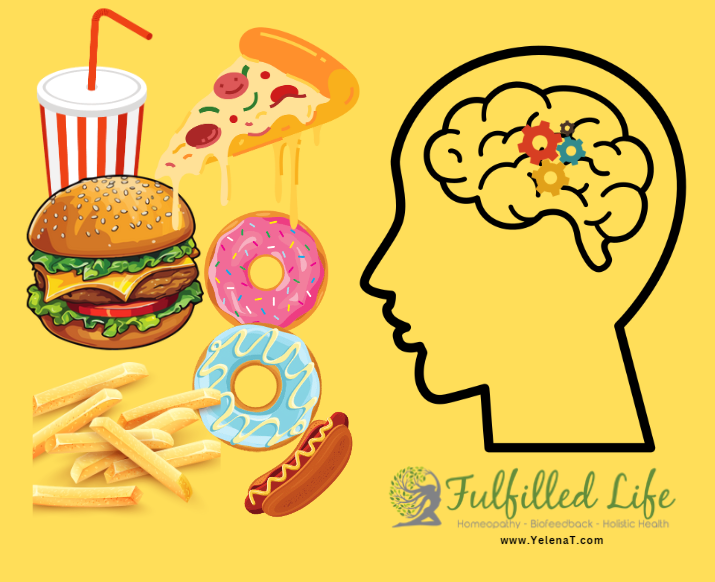Are you familiar with those moments when emotions seem to steer you toward the kitchen, seeking comfort in food? Emotional eating is a common phenomenon that many women can relate to, especially during times of stress, sadness, or boredom. In this blog, we’ll explore the triggers behind emotional eating and its impact on our overall well-being. More importantly, we’ll embark on a transformative journey to discover mindful eating practices, stress-relief techniques, and the importance of self-compassion, allowing us to find alternative ways to nourish our souls without turning to food.
Understanding Emotional Eating Triggers
For many of us, emotional eating becomes a coping mechanism, offering a temporary sense of relief and comfort when emotions run high. Stressful work deadlines, relationship challenges, or even the monotony of daily routines can all trigger these responses. During these moments, we may find ourselves reaching for sugary treats, salty snacks, or carb-loaded comfort foods without realizing the underlying emotional triggers at play.
Effects on Well-Being
While emotional eating might provide fleeting comfort, it can also have negative consequences on our well-being. Overindulging in unhealthy foods may lead to feelings of guilt and shame afterward, further perpetuating the cycle. This pattern can also impact our physical health, leading to weight gain, digestive issues, and fluctuations in energy levels. Moreover, relying on food as a primary coping mechanism might prevent us from addressing the root emotional causes, hindering personal growth and self-awareness.
Mindful Eating and Stress-Relief Techniques
Mindful eating is a powerful practice that can help us cultivate a healthier relationship with food and our emotions. By bringing awareness to our eating habits and the sensations of hunger and fullness, we can learn to differentiate between true physical hunger and emotional cravings. Practicing mindful eating allows us to savor each bite, appreciate the nourishment our bodies receive, and find fulfillment in the present moment.
Moreover, incorporating stress-relief techniques into our daily lives can offer alternative ways to cope with emotional turmoil. Engaging in activities like yoga, meditation, nature walks, or creative outlets can help release tension, reduce stress, and provide a sense of balance and calmness. Finding healthy outlets for emotional expression empowers us to navigate life’s challenges with resilience and grace.
The Importance of Self-Compassion
As we strive to overcome emotional eating, it’s vital to practice self-compassion and embrace imperfection. Remember, we’re all human, and occasional slips are a natural part of the journey. Rather than judging ourselves harshly, we can approach these moments with kindness and curiosity. Developing self-compassion allows us to view setbacks as opportunities for growth and learning, motivating us to continue our holistic approach towards emotional well-being.
Finding Alternative Ways to Cope
In times of emotional turbulence, exploring alternative ways to cope can be transformative.
Here are some specific examples to help you navigate through challenging emotions:
- Connecting with Friends or Loved Ones: Reach out to friends or family members who can lend a listening ear and offer support. Sharing your feelings and experiences with someone you trust can provide a sense of comfort and relief.
- Engaging in Creative Hobbies: Tap into your creative side by exploring hobbies like painting, writing, crafting, or playing music. Creative expression can be a powerful outlet for emotions, allowing you to process feelings and gain insights into your inner world.
- Seeking Professional Support: Don’t hesitate to seek guidance from a Therapist, Naturopath, or Holistic Practitioner. Professional support can provide valuable tools and strategies to cope with emotional challenges and promote personal growth.
- Practicing Mind-Body Techniques: Incorporate mind-body practices like yoga, tai chi, or qigong into your routine. These gentle forms of movement help release emotional tension and promote a sense of calm and relaxation.
- Taking Nature Walks: Spend time outdoors and immerse yourself in the beauty of nature. Nature walks can rejuvenate the spirit, reduce stress, and foster a deeper connection with the natural world.
- Mindful Journaling: Dedicate time each day to write in a journal, allowing your thoughts and emotions to flow freely. Journaling offers a safe space for self-reflection and can help gain clarity and perspective.
- Meditation and Breathwork: Practice meditation and deep breathing exercises to anchor yourself in the present moment and find inner peace. These mindfulness practices can reduce anxiety and cultivate emotional resilience.
- Engaging in Physical Activities: Engage in activities that get your body moving, such as dancing, running, or practicing a sport. Physical exercise releases endorphins, the feel-good hormones, and helps boost your mood.
- Pampering Self-Care: Treat yourself to nurturing self-care rituals, such as taking a warm bath, indulging in a spa day, or curling up with a good book. Self-care practices rejuvenate the mind, body, and soul.
- Volunteering or Helping Others: Engage in acts of kindness and service, such as volunteering at a local charity or helping a friend in need. Giving back can bring a sense of fulfillment and connectedness to others.
Remember, finding alternative ways to cope is a unique and personal journey. Explore different activities and practices to discover what resonates with you the most. Embrace these coping mechanisms as empowering tools on your path to emotional well-being and soul nourishment.
Best Practices for Ending Emotional Eating and Nourishing Your Soul
- Mindful Meal Planning: Take time to plan balanced and nourishing meals ahead of time. Ensure your meals are rich in whole foods, incorporating plenty of fresh fruits, vegetables, whole grains, and lean proteins. By planning your meals mindfully, you can reduce the temptation to turn to emotional eating when feeling stressed or overwhelmed.
- Create a Supportive Environment: Remove tempting junk foods and unhealthy snacks from your home, and replace them with wholesome alternatives. Stock your pantry and fridge with nutritious options that support your well-being. Having a nourishing environment at home can help you make healthier choices when cravings strike.
- Practice Mindful Eating: Slow down and savor each bite during mealtimes. Pay attention to the taste, texture, and aroma of your food. Eating mindfully not only enhances your appreciation for the food but also helps you recognize your body’s hunger and fullness cues, preventing mindless overeating.
- Keep a Food Journal: Keep a food journal to track your eating habits and emotional triggers. Write down what you eat, when you eat, and how you feel before and after each meal. This practice can help you identify patterns and emotional connections to certain foods.\
- Cultivate Stress-Relief Rituals: Develop healthy stress-relief rituals to cope with emotional challenges. Engage in practices like meditation, deep breathing exercises, or yoga to create a sense of calm and balance. Finding effective ways to manage stress can reduce the urge to turn to emotional eating as a coping mechanism.
- Practice Self-Compassion: Be gentle and compassionate with yourself on your journey to overcoming emotional eating. Understand that it’s a process, and setbacks are a natural part of the process. Treat yourself with kindness and love, celebrating each step towards a healthier relationship with food and emotions.
By incorporating these best practices into your daily life, you can embrace a holistic approach to ending emotional eating and nourishing your soul. Remember, small steps can lead to significant changes, and each choice you make brings you closer to achieving emotional balance and well-being. Be patient with yourself, and honor the transformative power of self-care and self-awareness in your journey towards a more fulfilling and nourished life.
As we journey towards ending emotional eating, I want you to know that I’ve personally experienced and struggled with decades of emotional eating myself. This issue is very dear to my heart, and I truly understand the challenges it can bring. Together, let’s cultivate a deeper connection with ourselves and nourish our souls in a holistic way.
By understanding emotional eating triggers and their effects on our well-being, we can unlock the power of mindful eating and stress-relief techniques. Embracing self-compassion, we’ll embark on a path of growth and transformation, seeking healthier ways to cope with emotions and nurture our souls without relying on food.
This journey isn’t about perfection—it’s about progress and self-awareness. If you ever feel like you need some support along the way, I’d be more than happy to have a complimentary call with you. We’ll navigate the challenges of emotional eating together and create a personalized approach that fits your unique needs and experiences.
Let’s embrace holistic practices and the joy of nourishing both our bodies and spirits. Together, we’ll reclaim our relationship with food and emotions, fostering emotional balance and well-being. I’m here to guide you every step of the way as we cultivate a life filled with self-compassion, joy, and soulful nourishment. Remember, you’ve got a friend and ally in this journey!








